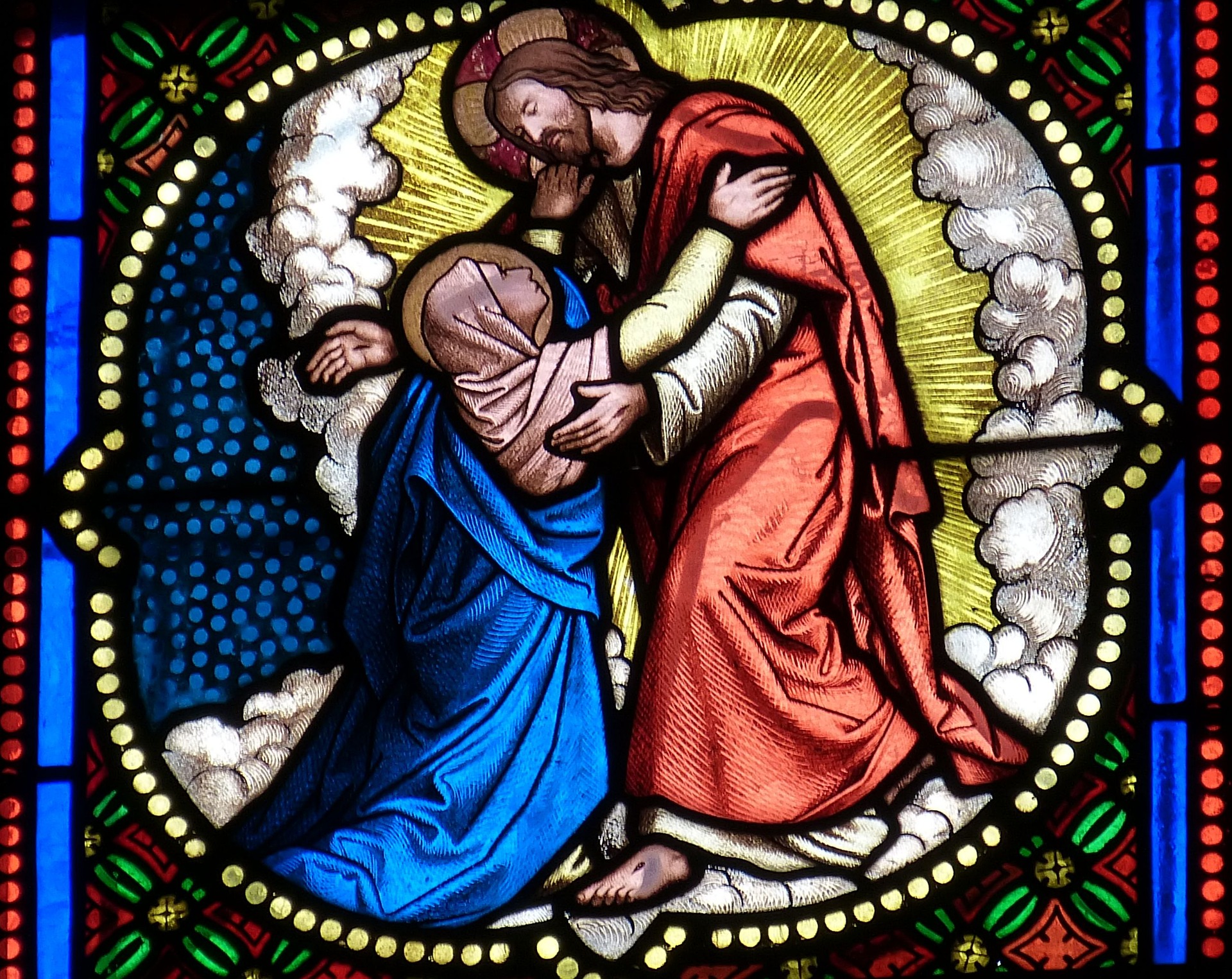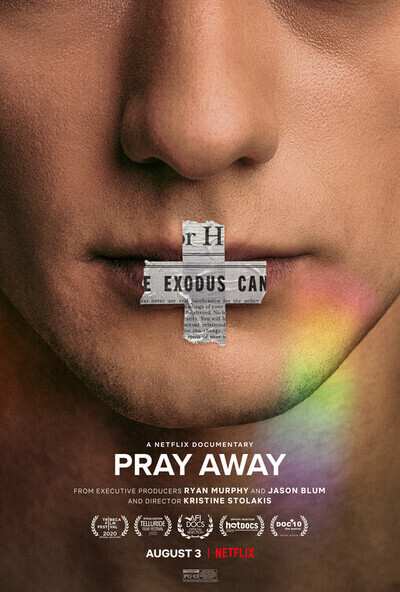
Anya Rous on “Pray Away” and Using Film as a Tool for Social Change

A producer is the key to making a movie happen. Though “production” may ring a “money bell” in our heads, it carries the potential to shape the ideological workings of not only the film, but of the creative process.
Anya Rous is the Vice President of Production at Multitude Films, an LGBTQ-led production company working to amplify underrepresented voices through film. Rous began her career at Just Vision, a media nonprofit created to use storytelling as a means to create peaceful resolutions to the Israeli-Palestinian conflict. She has since worked on a variety of social action projects at Multitude Films and has served as a board member at JFREJ (Jews for Racial and Economic Justice). Her latest film, Pray Away, lays bare the practice of LGBTQ conversion therapy in the Baptist church, featuring intimate profiles of all parties involved. It’s now streaming on Netflix. She talks to Lilith’s Arielle Silver-Willner about her career and the social injustices that move her to create.
ASW: Tell me about how you got started—why film?
AR: Film has to be something that audiences will want to see, whether or not they’re invested in the issue. It puts us in the shoes of the protagonists—if it moves us personally, and if we’re thinking about our agency as individuals with our own choices, then film can also be really powerful for catalyzing activism. That was true for me at Just Vision—I worked there for five years and their whole model is around, “How do you accompany a film with really deep and ongoing community engagement work?”
My producing partner, Jessica Devaney—the founder and president of Multitude Films—and I had worked together at Just Vision. She started talking to me about producing full time with her [at Multitude] when it was still very small. And so we, and another producing partner, Lisa Valencia-Svensson, began to envision and build Multitude Films as a company. Then we made a number of different films, including Pray Away.
Because homophobia and transphobia are still so strong in many families and communities, many people feel like they have a choice one way or the other—be alienated and isolated or be accepted.
ASW: Let’s talk about Pray Away. The film is largely about the efforts of Evangelical communities to eliminate queerness—as a Jewish woman, why did you choose to explore this topic?
AR: First of all, there is conversion therapy, certainly, in the Jewish community. And the message that it is not okay to be an LGBTQ person? You don’t need to be in a religious community for that to permeate the ideas that we all grow up with. And so, looking at the power that this world plays in perpetuating these narratives was something that impacted me, as a queer Jewish woman. I’m also invested in and really want to equip people who are working for the wellbeing and acceptance and dignity of LGBTQ people around the world.
ASW: Many folks in the film talk about their desire to belong to a community as their motivation to undergo conversion therapy, and a later scene—the Proposition Eight Protest—shows what a difference it can make when the queer community unites loudly and visibly. Can you talk more about this?
AR: That’s a really important reflection on the film. The desire to belong and to be accepted is very powerful. Because homophobia and transphobia are still so strong in many families and communities, many people feel like they have a choice of one way or the other—be alienated and isolated or be accepted. There is a lot of power, such as at the Freedom March, in what drives people and keeps them in this world. We’d like to show that there are other ways of creating communities that really foster and support wellbeing.
ASW: It’s interesting that the film doesn’t go into much technical detail about how conversion therapy is practiced.
AR: Yes, it was more of a “show, don’t tell” orientation. This is a movement. It includes support groups and peer counseling and pastoral care. You see Jeffrey McCall, the current leader, having a conversation with a mother who is trying to navigate how to think about her trans child, and that is part of how conversion therapy is practiced. There’s a whole host of different ways of trying to change people’s gender and sexuality.
ASW: You’ve worked on a handful of films amplifying voices in underrepresented communities—what have been your favorites?
AR: That’s like asking, “Who are your favorite kids?” Each of them is really unique. Like Just Vision, Multitude focuses on cultural change and impact from the very start of production—in how you cast and build out your team and in thinking about what your responsibilities are to the people that you’re filming with and to all people who will be touched by the same issue that you’re working on. And the team—they are creating something that they can see themselves in it, but also can be moved by.
I really value thinking about our films as sources for healing. In Always in Season, which is about the legacy of lynching and the reverberations of racial terrorism, Jacqueline Olive, our director oriented the film to remind us that, for every community that is touched by lynching—and that’s basically every state in this country—it’s also deeply embedded in our institutions, such as policing and courts and schooling and housing. It was also really important to her that communities could both consider that past and feel the feelings—anger, despair, heartbreak, love, sense of resiliency—all that. Looking with a clear eye at the local presence and legacy of lynching was a necessary step alongside efforts for reparation. Part of the repair was also being honest emotionally and giving yourself the opportunity to feel deeply that it continues to play out in our communities and in our bodies.
Another film, The Feeling of Being Watched, looks at how the Muslim community in the suburbs of Chicago that was unjustly surveilled in the decade leading up to 9/11. Being under this kind of scrutiny from the state has a huge impact on the communities that are targeted—on their sense of wellbeing and stability and security. Assia Boundaoui, the director, grew up in that community, and wanted this to be a gift to those who have experienced this surveillance too. She wanted to reflect back the tools of their resiliency—and also to hold up to the light what their communities had been going through.
ASW: What responses have you seen from the communities that your films spotlight?
AR: One of the first times we screened The Feeling of Being Watched was to several hundred community members in Chicago, where it was filmed. We brought a facilitator who is grounded in mental health and wellbeing because it elicits a lot of strong emotions to see these stories—many people didn’t know the extent to which their community had been targeted and didn’t know how long it had been, didn’t know how many people, didn’t know all the strategies of this blanket indiscriminate surveillance. That was very intense. Even though it affirmed what they thought they had been experiencing, it was still very different to actually encounter that it was as exhaustive as it actually was.
We set up a town hall for people to share their own stories and their own experiences—many people spoke about what it had been like to live for 25 years with ongoing visits from the FBI, and how, in some cases, that deteriorated their ability trust others in their community. We brought that film to communities around the country, and even outside of Ridgeview and Chicago, there were so many similarities in the ways communities had experienced similar kinds of programs. After every one of our screenings people would come up to share their stories.
When we screened Always in Season, the talk-backs would often be the longest that theater had ever had, with people making connections to, or wanting to get involved with the memorials for people who had been lynched in their community, or tapping more into EJI’s work and thinking about how these stories continued to play out in their own lives and their own communities.
ASW: What’s next for you? Can you give us a sneak peek at any of your upcoming projects?
AR: A documentary on the Indigo Girls!
We executive produce and produce films, so there are a lot of different projects. We have a film that just came out on an HBO Max (in collaboration with Sesame Workshop) called Through Our Eyes Apart, which is a short film in a series of four, that shows parental incarceration from a young person’s perspective, to help destigmatize that experience and make visible that all communities and families are deeply impacted when a loved one is incarcerated. There are 12 million young people who are going through this—it’s for them.



